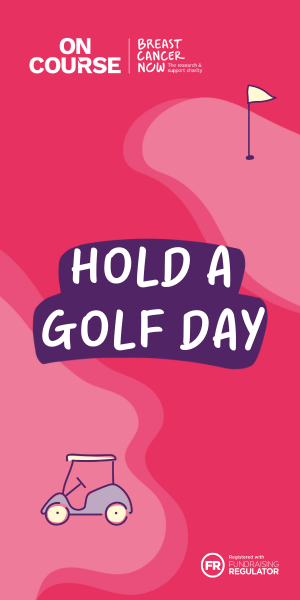Could golf help to alleviate some of the symptoms of menopause? And could the menopause actually be good for golf?
Women have been silently struggling through menopause for decades.
It’s a taboo topic that we just expect half the population to quietly deal with. That’s despite women experiencing debilitating symptoms that impact their daily life, work, relationships and future health.
But – finally – the narrative is changing.
Celebrities like Davina McCall are opening up about their experiences. And an investment in research is bringing important conversations about menopause to the fore; educating and empowering women to manage their symptoms more effectively.
Symptoms of menopause
Before my mum went through menopause, I have to admit that I knew next to nothing about it.
But I have since learned that menopause is a lot more than just hot flushes and the end of periods.
According to Women in Sport, “menopause can make women more at risk of osteoporosis (weakened bones) due to reduced levels of oestrogen as well as contribute to other conditions such as diabetes, stroke and heart disease.”
Changes in hormone levels during menopause can also impact mental health, with feelings of anxiety, stress and depression common.
The NHS lists mental health symptoms of menopause as:
- Anger and irritability
- Anxiety
- Forgetfulness
- Loss of self-esteem
- Loss of confidence
- Low mood and feelings of sadness or depression
- Poor concentration – often described as 'brain fog' and/or lost words
All of which are only exasperated when combined with difficulty sleeping.
Five ways golf could help women manage menopause symptoms
In their recent report, Women in Sport found that women who do not meet the recommended amount of physical activity during menopause reported worse symptoms and a lower quality of life.
They summarised that staying active during menopause enabled women to:
- Better manage menopausal symptoms
- Improve short and long-term health
- Improve mental wellbeing
- Build social networks for support
- Increase confidence and motivation
And whilst there is limited research into golf and menopause, the physical and mental benefits of playing golf are pretty well documented.
And when you start to break that down, it’s clear to see that golf is a sport that could really help women manage menopause symptoms.
Here’s why:
- Golf is an activity that works both your muscles and cardiovascular system, keeping your heart healthy and your bones strong. That’s particularly important because as levels of oestrogen drop during menopause, bone density decreases, and women are more at risk of breaking or fracturing bones if they fall.
- Golf promotes balance and flexibility. That could help to prevent falls later.
- Spending time outdoors and in nature has been linked to lower stress and better moods. So being out on the golf course could help to combat some of the mental health issues synonymous with menopause.
- It might not be a team sport, but golf is one of the most sociable games you can play and a great way to build your social network. You’ll spend hours on the course chatting with people you might not have had the chance to meet otherwise. And, of course, it would be rude not to have a glass of wine together afterwards.
- The golf bug is real – when it bites, you’ll want to keep coming back and getting better. Over time, your confidence will grow and you’ll be even more motivated to keep coming back.
Could menopause support bring more women into the game?
There’s no question that educating and empowering women through menopause is important. But actually, supporting women during that time in their lives could also have huge benefits for the game of golf.
Women typically experience menopause between the ages of 45-55 – a key demographic for golf thanks to more disposable income, more time and fewer childcare commitments.
A lot of women interviewed by Women in Sport saw menopause as a time to reappraise their life. To try new things, become more active and start focusing on themselves a bit more.
Menopause, therefore, offers a great opportunity for women to take up new, low-impact sports – like golf.
But we need to powerfully educate women on the benefits of the game first.
So my question is: If we made women’s health – including menopause – a core pillar of the golf industry’s participation strategy, would we attract more females into the sport?
Looking for more like this? You'll love this article: Are you prepared for menopause?















